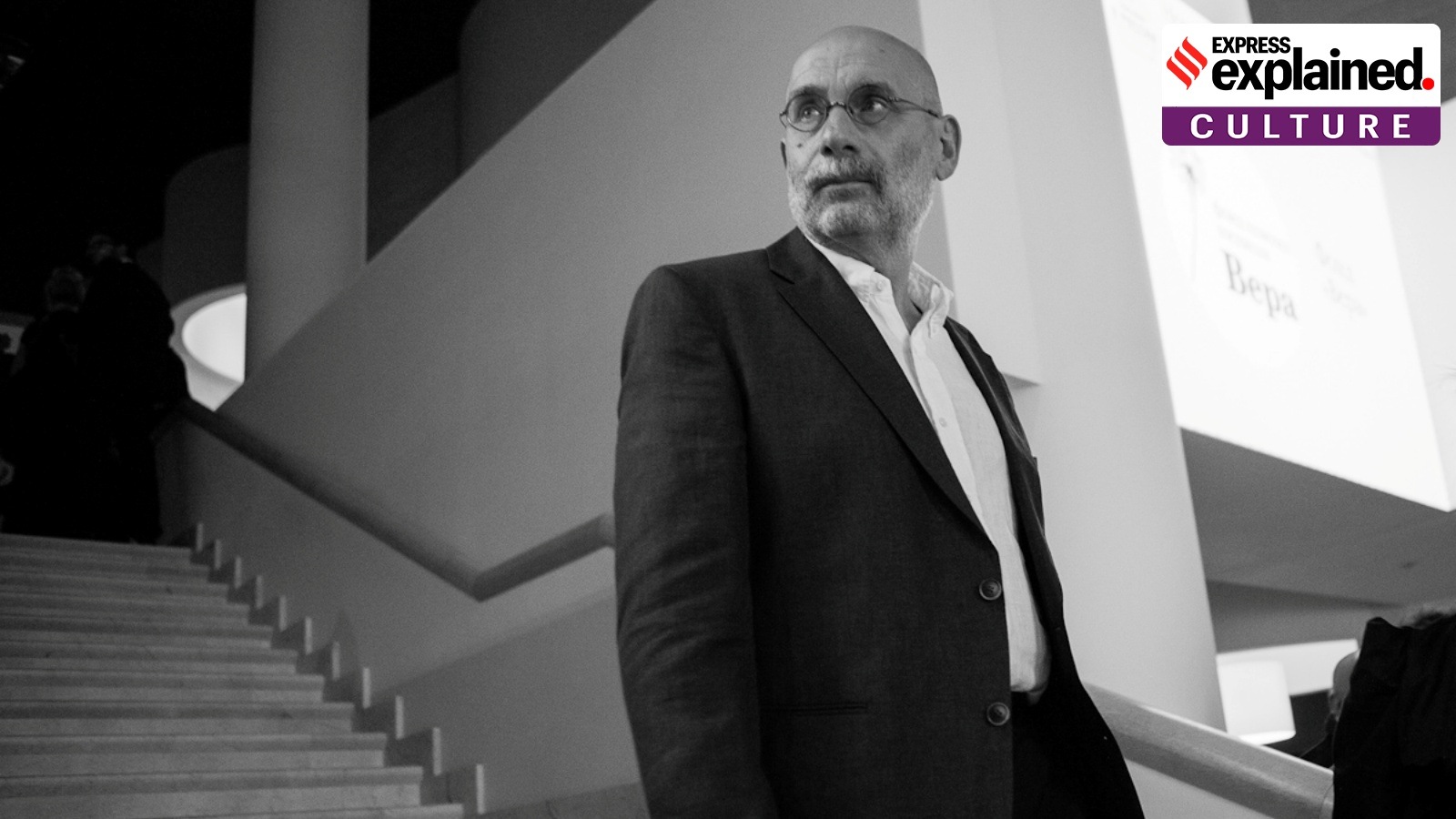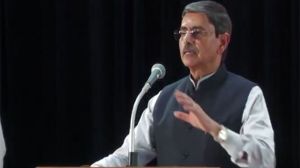The story goes that Erast Fandorin, the fictional sleuth at the heart of Russian writer Grigory Chkhartishvili’s fame, was both an act of defiance and an impulse of love. In the Russia of the 1990s, still wrestling with its post-Soviet identity, crime fiction was considered lowbrow, a guilty pleasure best concealed beneath brown-paper covers. Chkhartishvili ’s wife, a devoted reader of detective novels, felt self-conscious reading them in public. But the world was shifting. The Soviet Union had broken up in 1991 at the end of a long-drawn Cold War, and Chkhartishvili set out to write the kind of book that wouldn’t need to be hidden in public. In 1998, under the pseudonym Boris Akunin, which loosely translates to “great villain” in Japanese, he published The Winter Queen, featuring the dapper Fandorin. Part homage to golden-age mystery fiction, part historical tableau, it soon became a cult classic in Russia. Over a dozen Fandorin novels followed, making Akunin one of Russia’s most widely read and celebrated contemporary authors.
Another act of defiance and love, and of anxiety — about the authoritarian shift in his country — would shape the second chapter of his life, transforming him into a public intellectual who spoke up over and over again on Russia’s military excesses and the failures of President Vladimir Putin’s leadership. This week, as a Russian military court sentenced the writer to 14 years in prison in absentia for his opposition to the Russia-Ukraine war and his purported support for Ukraine, it marked yet another grim milestone in the Kremlin’s escalating war on dissent.

From scholar to dissident
Born in Soviet Georgia in 1956, Akunin moved to Moscow soon after. He first came to attention as a literary translator, particularly of the works of Japanese greats such as Yukio Mishima. But it would be through his Fandorin novels that he would find his fullest voice. Set in imperial Russia at the turn of the 20th century, the series distilled the virtues of independent inquiry, scepticism of authority, and moral integrity. In chasing conspiracies and assassins, Fandorin seemed ever alert to the danger of centralised power — a subtle foreshadowing of Akunin’s stance towards the rise and rise of Putin.
Over time, Akunin became a literary shapeshifter, writing essays, speculative fiction, and novels under various names — Anatoly Brusnikin, Anna Borisova, and Akunin-Chkhartishvili, among others. Each voice, each form, added to his stature not just as a writer, but as a chronicler of Russian history.
His journey into dissent began with Russia’s attack on Georgia in 2008 and its annexation of Crimea in 2014. He was among the first of Russia’s cultural elites to condemn these acts. In between these two events, Akunin moved to Europe, living between France and Spain, when he was not in Moscow.
A writer’s resolve
Around the same time that the fictional Fandorin was making his way in the world, another Russian leader was charting his ascent. After years with the KGB, Putin had begun his political career in 1991. When president Boris Yeltsin resigned in December 1999, he would move to centre stage. In 2000, Putin became president, followed by a second term in 2004. Due to Russia’s constitutional limitations, he would serve as prime minister under Dmitry Medvedev afterwards, running for a third term in 2011.
In December 2011, when mass protests erupted in Russia after an election marred by allegations of fraud and intimidation, Akunin returned to Moscow and joined the people’s movement. As he helped organise rallies and challenged rising nationalist figures, the novelist became a rallying force, lending the anti-Kremlin street protests both moral clarity and intellectual heft.
Story continues below this ad
In an act of symbolic defiance in 2012, he proposed a citizens’ walk through Moscow, visiting statues of poets. Over 10,000 people joined him spontaneously. Within weeks, the Kremlin passed laws imposing staggering fines on unsanctioned gatherings. But by then, something irreversible had taken root. Akunin had stepped out of fiction and into history — not as a politician, but as a witness determined to measure what remained of Russia’s civic soul. He refused to enter politics full time, asserting that his role as a writer gave him greater access to the Russian diaspora across the world. In a 2012 interview to The New York Times, Akunin said, “Some of us are like a volunteer fire brigade, but that doesn’t mean we want to become professional firefighters.”
Kremlin crackdown
In Akunin, the Kremlin encountered a rare figure who combines enormous cultural popularity with unflinching political critique. His public denunciations of Putin, amplified through essays and social media, have made him a symbol of resistance.
Since 2014, Akunin has been on a self-imposed exile in the UK. In 2022, when the Russian invasion of Ukraine began, Akunin condemned it on social media, calling Putin “a psychologically deranged dictator”. The state’s retribution was swift. Last year, Akunin was added to Russia’s register of “terrorists and extremists”, after he was designated a “foreign agent” in 2023. He was accused of disseminating “false information aimed at creating a negative image” of Russia and helping raise funds to support the Ukrainian military.
Even though sentences in absentia come into effect if the defendant is extradited to Russia, the “foreign agent” designation, much like the Soviet-era appellate “enemies of the people”, compels the accused to explicitly identify themselves in social-media posts and other public communications. It also imposes onerous financial reporting obligations. The publication and sale of Akunin’s books have been restrained in Russia; plays based on his work pulled from theatres.
Story continues below this ad
Akunin had spoken of the implications of the censorship at the time: “A seemingly minor event, the banning of books, the declaration of some writer as a terrorist, is actually an important milestone… Books have not been banned in Russia since Soviet times. Writers have not been accused of terrorism since the Great Terror. This is not a bad dream, this is happening to Russia in reality”.








































